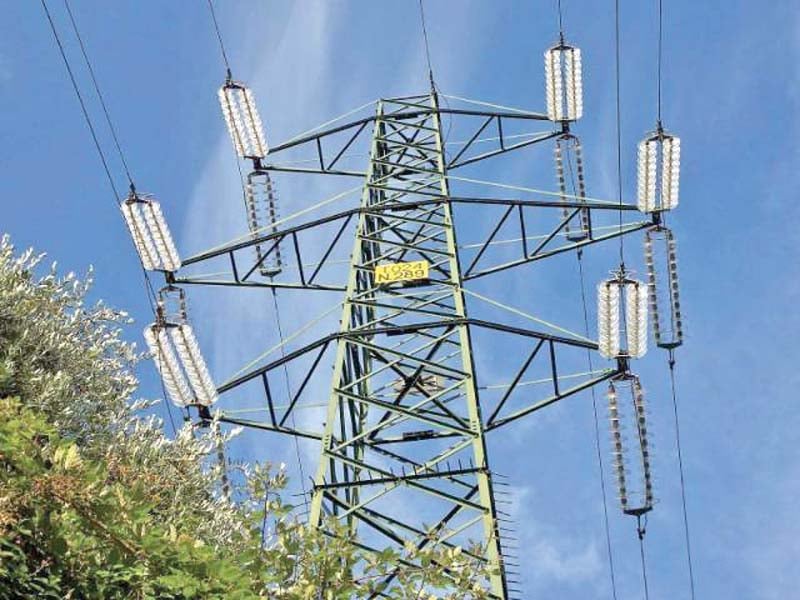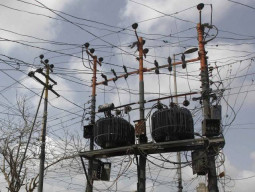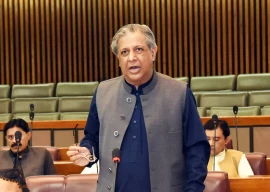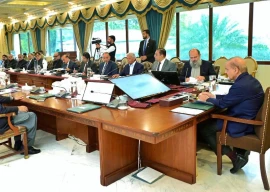
ISLAMABAD: The National Electric Power Regulatory Authority (Nepra) has given the go-ahead for an increase of Rs1.5 per unit in the hydroelectric power tariff, which will put an additional burden of Rs70 billion on consumers for settling net hydel profit arrears of Khyber-Pakhtunkhwa (K-P).
In the decision announced on Thursday, the regulator allowed the Water and Power Development Authority (Wapda) to collect Rs25 billion from power consumers in the ongoing financial year 2015-16, Rs15 billion in 2016-17, Rs15 billion in 2017-18 and Rs15 billion in 2018-19.
Under a memorandum of understanding signed by the federal and K-P governments, Rs70 billion would be paid to the province to clear its outstanding net hydel profit after reconciliation of mutual claims. For that purpose, Wapda would seek consent of the Council of Common Interests (CCI) - an inter-provincial body - through the Ministry of Water and Power and file a tariff petition for the recovery of arrears in four installments.
In the petition, Wapda requested Nepra to set overall tariff at Rs3.01 per kilowatt-hour (kWh), which would allow it to pay net hydel profit to K-P for the electricity produced and supplied by the province.
However, in response to the petition, Anwar Kamal Law Associates and the All Pakistan Textile Mills Association (Aptma) submitted intervention requests, opposing any increase in power tariff.
During the public hearing, Anwar Kamal Law Associates aired grievances over the demand for increase in the hydroelectric power tariff, arguing gas price had already been increased by 2%. A higher power tariff, it said, would prove detrimental to Pakistan’s industry, which would find it difficult to stay globally competitive.
On its part, Aptma argued that CCI’s decision on payment of net hydel profit had clearly indicated that it was a forward-looking cost as far as its recovery from the consumers was concerned.
After Nepra approved the net hydel profit at Rs1.1 per kWh, the Ministry of Water and Power in consultation with Wapda calculated the arrears and decided to recover them from the consumers.
“Working out the arrears may be correct, but it is a liability that cannot be underwritten by the consumer. The arrears should instead be paid by the federal government,” the textile lobby group said.
Rejecting any increase in tariff, Aptma pointed out that the government was already receiving Rs41 billion per year as tariff rationalisation surcharge from the consumers and now wanted to put an extra burden of Rs70 billion.
Earlier, Wapda told Nepra that the increase in hydroelectric power tariff would push up average tariff by 55 paisa per unit.
It revealed that the federal government had asked it to borrow Rs25 billion from banks and add Rs1.875 billion as mark-up expense before recovering first installment from the consumers in the current fiscal year. Next year, Wapda would pay Rs15 billion to K-P on account of net hydel profit.
In November 2015, Nepra had approved about 217% hike in K-P’s net hydel profit while increasing the price of cheaper hydroelectric power by around 16%. As a result, K-P will now be entitled to around Rs18 billion in net hydel profit per year compared to Rs6 billion earlier.
Published in The Express Tribune, May 27th, 2016.
Like Business on Facebook, follow @TribuneBiz on Twitter to stay informed and join in the conversation.


































































COMMENTS
Comments are moderated and generally will be posted if they are on-topic and not abusive.
For more information, please see our Comments FAQ